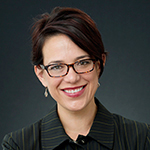 By Amy Butler
By Amy Butler
For some time I’ve been of the conviction that cultivating diverse communities of faith is critical to living the gospel.
Some tell me creating a diverse community is just not a reality for their church; the community surrounding the church is too homogenous. I think that claim is flatly untrue. The bottom line is that creating diverse communities is an option for all of us, because each human is distinct and unique.
It’s a natural human instinct to gravitate toward people who seem most like us, but learning to value and cultivate diversity in our faith communities is worth the time and effort. That’s not to say creating a diverse community is easy.
In fact, to create a healthy culture of diversity within a congregation, the system must be trained to tolerate a higher level of discomfort as stasis. That is, members of diverse communities tolerate a little more discomfort than they would if they were members of a community where everyone shares a similar life situation, where everyone looks and thinks in generally the same way.
In its best expression healthy congregational diversity can work to create a culture in which people are constantly being invited to stretch and grow, to enlarge their view of the world, and to consistently expand their understanding of the kingdom of God. The realization that God’s love for the whole world extends beyond my own safe and limited view of the world is a transformative gift, a critical part of ongoing discipleship. And when diversity is valued and managed well, it’s indicative of a high level of trust in a congregation.
But like most things in life, there’s a downside to diversity. While true diversity in a community is hard to establish, it may be even harder to nurture in healthy ways. Like so many aspects of our life together, diversity takes careful tending, or we can easily veer off into unhealthy expressions of an ideal we want to model for the world.
Here’s what can happen in a community that claims diversity but doesn’t tend it faithfully: we create a culture of accommodation.
You’ve seen this before. We claim we are a church that values diversity and welcomes everyone. We just throw open the doors and invite all the members of our community to participate, contribute and lead. In addition to working in beautiful concert with our Baptist polity, this approach to congregational life can enrich our worship, deepen our relationships and take the work of transformation to newer and deeper levels than we’ve ever experienced before.
But then someone begins behaving badly. Undermining behavior, destructive gossip, inability or unwillingness to communicate openly — there are any number of descriptive phrases for the kind of behavior that harms communities.
And when we who value diversity experience such behavior, we often mistakenly move aside and allow room for such destructive engagement.
Why?
Because we claim to value diversity, and someone who values diversity makes room for everyone, right?
Wrong. Ignoring bad behavior to the detriment of the community is not cultivating healthy diversity; it’s creating a culture of accommodation, a sort of “anything goes” approach to our shared life. And this is not healthy diversity; it’s not really healthy anything. It is rather a fear-fueled toleration of dysfunction that will not only strip us of the benefits of healthy diversity, but can in fact cripple our entire congregation.
When a church makes the commitment to cultivating diversity the whole community must be on guard for signs of the slide into a culture of accommodation. And when we begin to notice we’re tolerating destructive behavior because we’re afraid to say anything, we need to take a moment to remember who we are and what we intend to create together, and then exercise the discipline of community.
Remember when you got in trouble as a little kid for hitting your sister? If you grew up in my house, a parent would pull you aside and say something like, “We don’t behave this way in our family.” In much the same way, the exercise of the discipline of community reminds us who we are and what we intend to do together, and it protects the whole community from destructive behavior.
No one said building and tending the community of Christ would be easy, but careful attention to how we order our life together is critical for the witness of the church in this world. Now more than ever the world needs to see examples of diverse, loving, healthy, faithful communities.
We owe it to each other and we owe it to the God we serve to reject a culture of accommodation, to practice the discipline of community, and to make the church a true and transformative witness to the world.
